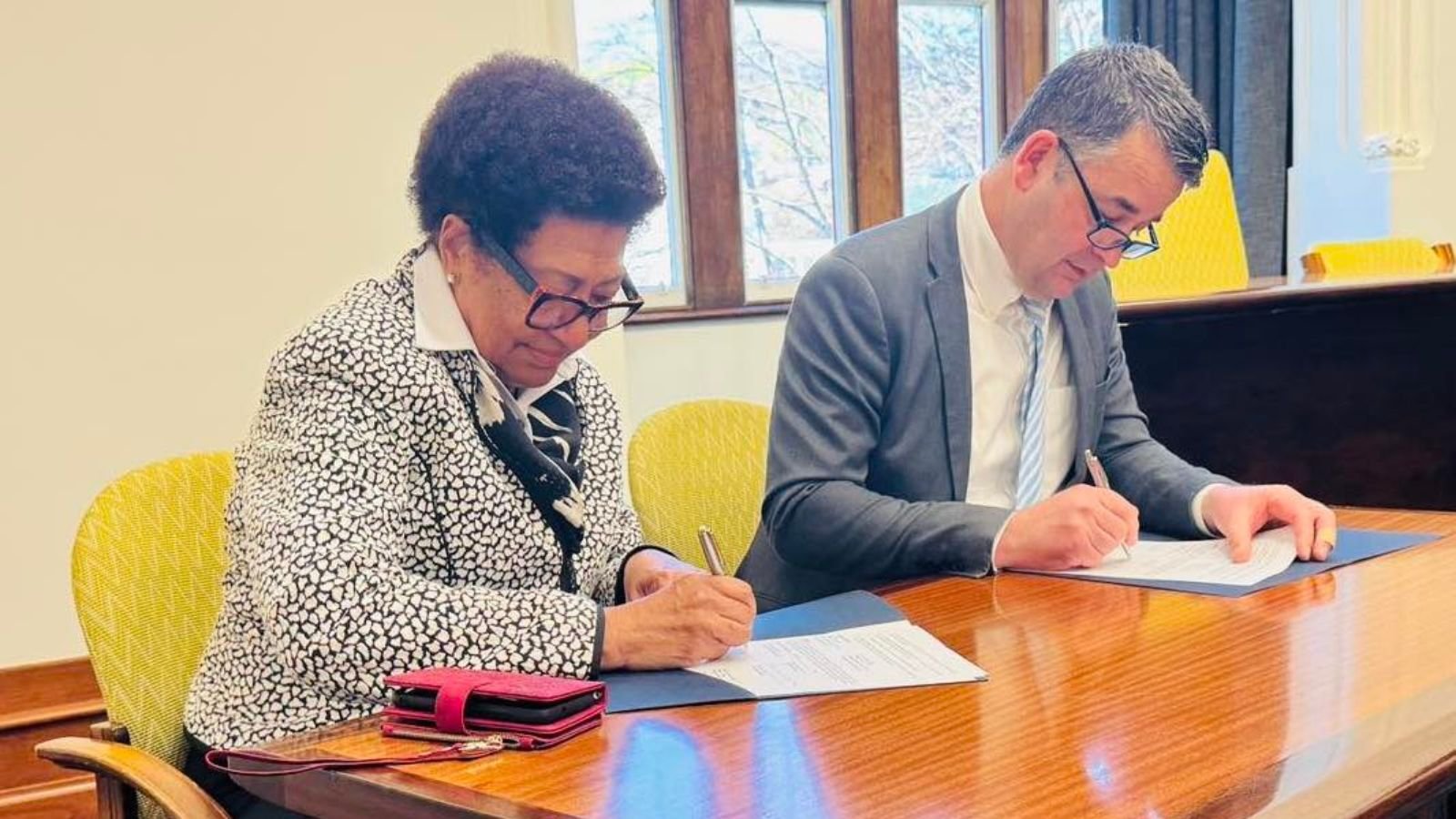Public Interest Journalism funded through NZ On Air
Tabutok is an online platform created by two Fijian sisters, to encourage healthy conversation around sensitive issues for Pacific people, like religion and sex. The first season of panel discussions and written stories, on the topic of ‘Pacific Bodies’, went live online in August 2021.
Tabu, is Fijian meaning sacred, and Tok, is Papua New Guinean for talk.
Founder Emmaline Pickering-Martin is an academic and writer for sites like The Spinoff and E-Tangata. She uses Twitter to test and discuss writing ideas and to see what Pacific people are talking about.
“As I was doing that, I was thinking, man, some of these conversations belong in a mainstream type of kōrero but no one’s really picking them up.”
The kinds of conversations Emmaline saw in social media, rather than mainstream, were about deeply sensitive issues like body image, blood quantum, religion and sexuality.
“It makes people feel as though when they’re having these conversations that they are, ‘nah, this couldn’t possibly be a thing’ because, where else are we seeing this?”
When the same issues came up for discussion in her Pacific Studies class, Emmaline decided it was important to bring the conversations to a wider platform.
She collaborated with her sister, Rae-Dawn Martin, a digital producer, to create Tabutok, a website of video discussions and written pieces dedicated to unpacking sensitive issues Pacific people face.
Emmaline chose to focus on Pacific bodies first when she saw the body positivity movement. While becoming increasingly visible in social media, it lacked a Pacific perspective.
“It doesn’t center any of the Pacific voices. Within body positivity, there’s just heaps of nuance,” Emmaline says.
“I wanted to just center us a little.”
The first panel of guests have backgrounds in the arts, culture and academia. They are also Emmaline’s friends, who bring the humour and vulnerability that comes with friendship as they discuss issues like blood quantum, fatphobia, modesty and Christianity, and sex.
“I chose people that I knew might be a bit uncomfortable with each of those topics,” Emmaline says.
“I want them to really know that the discomfort isn’t just theirs. When you feel uncomfortable that I’m feeling uncomfortable as well as you. And then make each other, not feel better, but feel seen.”
The panel acknowledges their discomfort and makes it part of the discussion.
“I’m really uncomfortable talking about sex” says choreographer and youth worker Hadleigh Pouesi.
“I think it’s because of Christian upbringing, that it’s rude to talk about. My wife is teaching me how to be more comfortable with talking and being someone who is sexual. I’m 34 and I can’t shake the indoctrination of sex being a sin.”
Pacific Studies Masters student Melemanu Fainga’a relates a conversation with her mother.
“Mom, I have a big issue with that because to me what you are telling girls is, that if you have sex before you’re married, that is your entire worth gone. And so I just fully went zero to 100.
“I was like, okay. So, if a girl’s had sex, does that mean she should just die?”
“That was a really brave, brave conversation for her to have publicly,” says Emmaline.
“I know she died having that conversation. But she’d had enough. She had so much feedback from her family. Her sister was so proud of her.”
Positive feedback for Tabutok has swept in from viewers.
One message said, “Hearing Hadley talk about (sex) was really eye-opening for me, that it’s okay and I can have these conversations with my mates. If he can do it with four women and some camera people.”
Another message from a woman in her 50’s said, “I never thought that I would want to discuss this with my kids, but I do.”
Avoiding important but sensitive conversations, Emmaline says, can cause harm.
“Talking about sex is so, so hard for our people. But that has a really negative effect on our wellbeing overall and it has a negative effect we can see in the diaspora.
“We see babies being left behind because women are too scared to go home with a newborn baby. That’s just recent examples over the past year and a half.”
Emmaline, who holds a masters degree in Pacific Studies and has a wide network of education contacts, says Tabutok is being used by high school teachers and in Universities.
The project was awarded funding of $125,000 by Foundation North and season two, on Pacific Stories, with a panel of Pacific media practitioners, is about to go live.
“I think there’s been a lot of damage done to our people through colonization and through the hiding of these talanoa, and these stories. I have this really deep belief that when we can pull out the uncomfortable conversations together and make them comfortable again, we’ll be able to heal some of that.”
Quotes have been edited for length and clarity.













